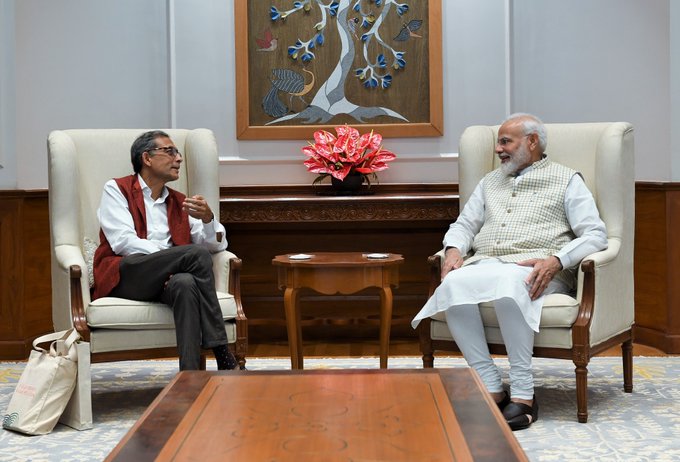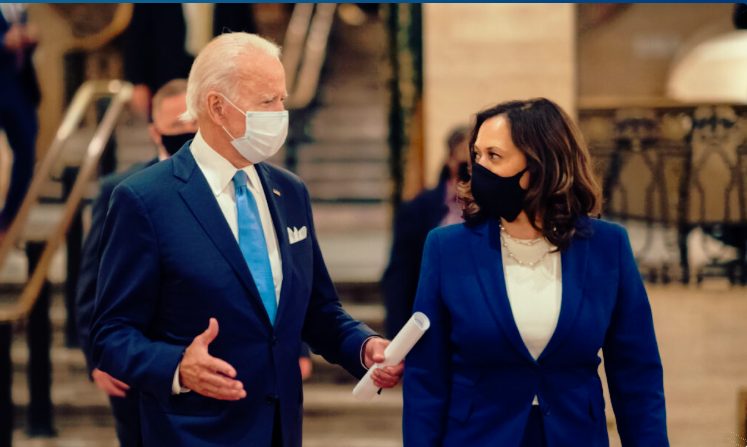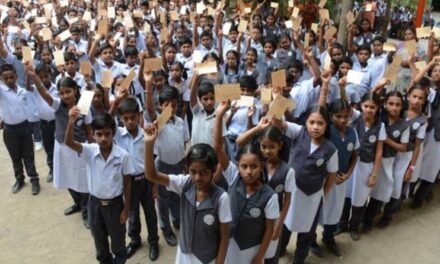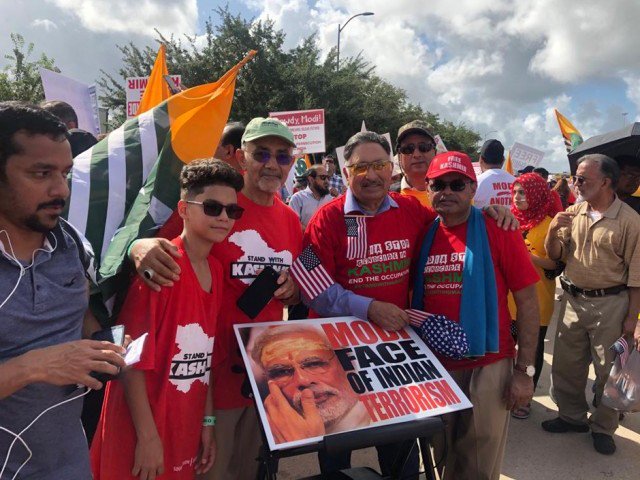Indian-American Abhijit Banerjee, a professor at Massachusetts Institute of Technology (MIT), won the Nobel in economics, jointly with economists Esther Duflo and Michael Kremer, for their work on “experimental approach to alleviating global poverty”.
The 2019 Nobel Prize for Economics, met Prime Minister Narendra Modi at the 7, Lok Kalyan Marg residence of the Prime Minister.
While Congress leaders, including Rahul Gandhi, reminded the world about the ambitious Nyay scheme while congratulating Abhijit Banerjee, BJP leaders took digs at the economist for being “Left-leaning”.
Four days before Noble prize winner met Indian Prime minster Narendara Modi Union minister and Right wing leader Piyush Goyal called Banerjee attitude is “Left-leaning” In a sarcastic note he added ““Banerjee supported ‘Nyay’ (poverty alleviation scheme of congress and people of India rejected his ideology,” the Minister said.
This is in response to Banerjee recently utterance that Indian economy is on a shaky ground, adding data currently available does not hold any assurance for the country’s economic revival anytime soon.”
However in contrast Modi went in praise for Banerjee and tweeted Bannerji’s passion towards human empowerment is clearly visible.
Narendra Modi
@narendramodi
Excellent meeting with Nobel Laureate Abhijit Banerjee. His passion towards human empowerment is clearly visible. We had a healthy and extensive interaction on various subjects. India is proud of his accomplishments. Wishing him the very best for his future endeavours.
View image on Twitter
Abhijit Banerjee is visiting India for the first time since his big win. Later on Tuesday he will visit his mother in Kolkata and spend two days in the city.
Abhijit Banerjee’s prestigious win has triggered a war of words between the ruling Bharatiya Janata Party (BJP) and Opposition.
It is to be noted the noted economist who studied at the Jawaharlal Nehru University (JNU) in his younger days helped conceptualise Congress’s Lok Sabha election promise of providing a minimum income support to the weaker section.









